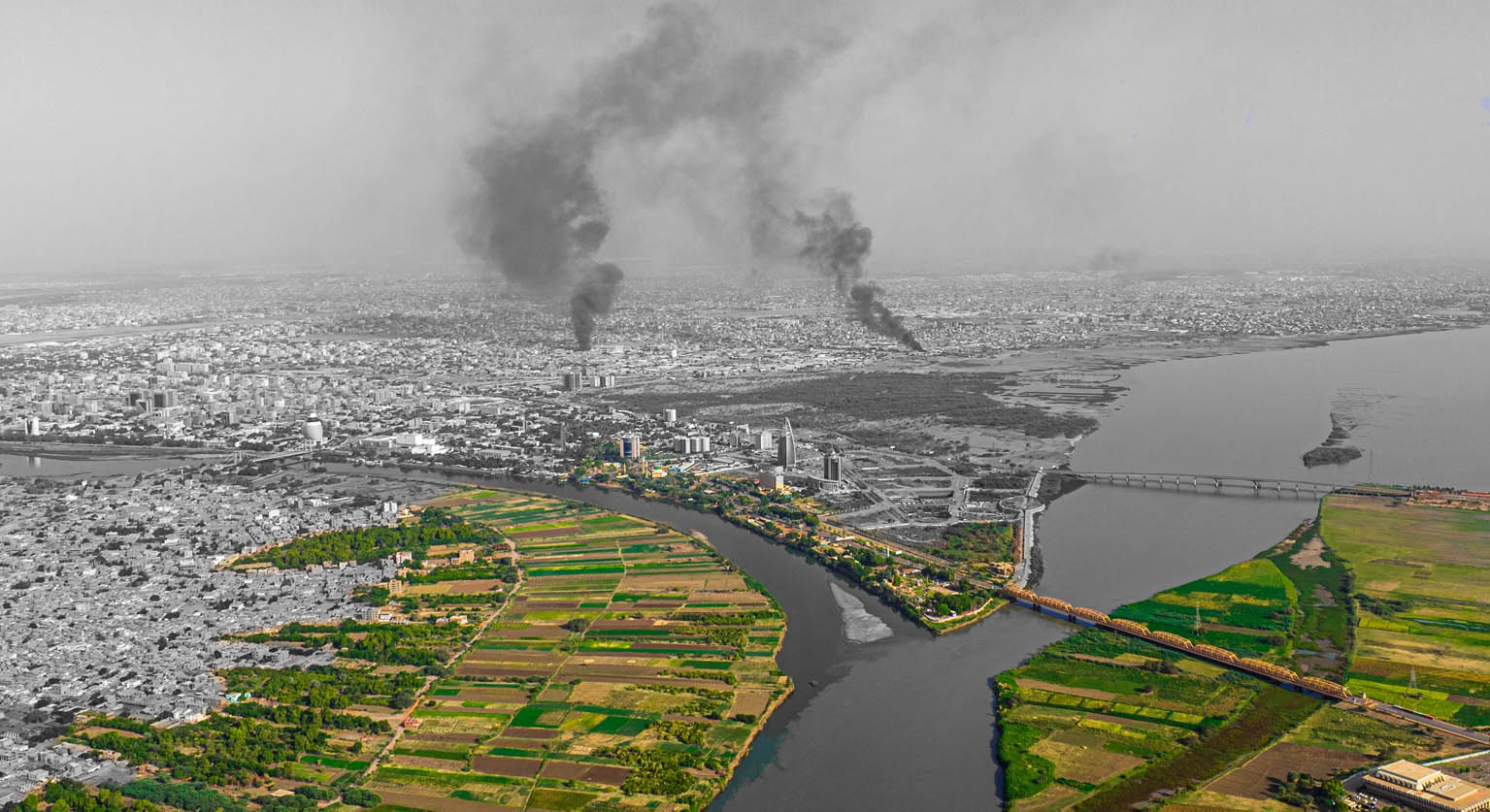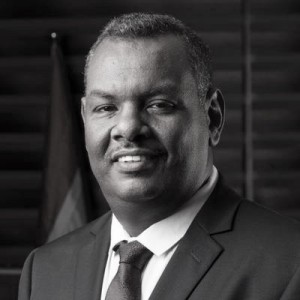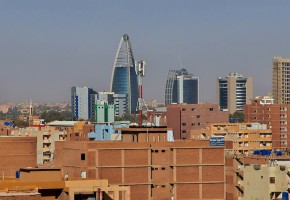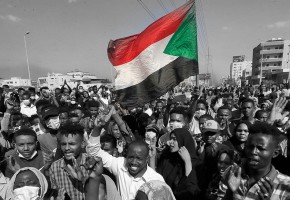

Sudan: From Revolution to War - Madani Abbas Madani
Introduction:
Since the morning of Saturday, April 15th, the Sudanese have been suffering from a vicious war in the capital, Khartoum, between the Sudanese Armed Forces and the Rapid Support Forces, a paramilitary group affiliated with the army. The war has so far led to over a thousand civilian deaths and tens of thousands of injuries. It also caused significant displacement. Over two million people left their homes in Khartoum for safer states, and tens of thousands sought refuge in neighboring countries.
The war crippled over 70% of functioning hospitals, completely halted the industrial sector, and led to the destruction and looting of numerous factories.
In the capital, with a population of more than twelve million and serves as the country's economic and political hub, the suffering and tragedies worsen day after day.
The conflict has also spread to some states in the Darfur region, particularly West Darfur with its capital, Geneina, and Nyalah, the capital of South Darfur, and El Obeid, the capital of North Kordofan, leading to numerous casualties and victims everywhere.
This article highlights the war's primary political and humanitarian repercussions and future implications.
The Army and the RSF: From Agreement to Conflict
The Rapid Support Forces (RSF) was established in 2013 by Omar al-Bashir's regime to support the Sudanese Army. They were meant to assist in the war in Darfur and were used by the Bashir regime in various battles, even outside the Darfur region. Their affiliations ranged between the army, security, and intelligence. In 2017, the ousted regime's parliament adopted a law that recognized them as a regular force and placed them directly under the President's command.
In April 2019, the Bashir regime's Security Committee, which includes a representative of RSF Commander Mohamed Hamdan Dagalo, declared alignment with the popular revolution in Sudan. However, the alignment was more of an attempt to inherit the Bashir regime than a genuine commitment to the Sudanese revolution's goals. Their fundamental role became evident on various occasions, most notably the dispersal of the peaceful sit-in on June 3, 2019.
Later, an alliance between civilian forces and the military led to a transitional government. Lt. Gen. Abdel Fattah al-Burhan was chosen as the head of the Sovereign Council, with Hamdan as his deputy, according to an internal regulation of the Sovereign Council. However, this partnership was marked by conflict, with the military component attempting to hinder the work of the civilian government in various ways.
On October 25th, 2021, the Army's commander and his deputy, who led the RSF, staged a coup against the transitional civilian authority. The widespread opposition to this coup persisted until the outbreak of the war in April of this year.
Both sides have external alliances and relations with certain countries. They enjoy good relations with Russia, with the RSF having connections to the Wagner Group, the Russian private military company. The Army has strong ties with Egypt, resembling a solid alliance. Finally, the RSF has significant relations with the United Arab Emirates.
Both sides have various economic ambitions and control influential companies. They participate in gold mining, trade, and export of Sudanese products. The Army has significant economic reach, particularly in the defense industries and the Zadna company. On the other hand, the RSF's economic arm is Al-Junaid company. In addition to their economic activities, both sides benefited from their involvement in the Saudi-led coalition in Yemen, receiving substantial financial support.
Understanding both sides' economic influence, alliances, and political aspirations is crucial in comprehending the primary causes of the conflict.
Furthermore, although the Islamic Movement organization lost its grip on power in April 2019, it retained significant influence within the military and security apparatus. It played a prominent role in intensifying the conflict between the two sides, primarily as their positions diverged regarding the political solution proposed by the international community after the October 25 coup. The RSF sought to align itself with the international community and civilian forces in promoting a democratic transition, aiming to overcome the sanctions imposed on it due to cooperation with Russia.
Conversely, Islamic officers portrayed the Army as opposed to this political agreement, claiming the need to integrate the RSF into the Army. Political and revolutionary forces echoed the demand. However, the Army's leadership hesitated, arguing that it was a matter that only concerned the military institution.
Understanding the nature of the conflict, which may initially seem absurd, requires comprehending the dynamics of economic and political competition between the two institutions in the aftermath of the chaotic situation left by al-Bashir;s regime, which created and empowered tribal and unofficial military and economic forces.
The War's Humanitarian Situation
In Khartoum, bodies are scattered on the roadsides with no one to identify or bury them. The RSF has committed violations such as occupying hospitals, using of artillery in civilian areas, and not allowing safe passage for civilians. Even functioning hospitals face brutal conditions and are hard to access. The bodies of soldiers and civilians are sprawled in the streets, unburied, while hundreds of individuals remain missing, their fate unknown.
Cases of documented rape are primarily attributed to RSF elements, along with the occupation of hospitals and public facilities, the looting of homes, and attacks on diplomatic missions. Meanwhile, the army continues its airstrikes and artillery shelling, resulting in dozens of casualties.
Attempts by Saudi Arabia and the United States in Jeddah to enforce the commitments made by both parties have failed. The protection of civilians, whose suffering has increased in internal displacement camps or among the majority seeking refuge with extended families, remains elusive due to the prolonged duration of the war without adequate resources to sustain a dignified life.
International institutions differ in their estimates of the number of people needing food assistance, ranging from 19 to 24 million. Thus, nearly half the population or more requires food aid. The risks escalate as the war continues into the start of the summer farming season, which provides a significant portion of the country's food needs. On the other hand, as the health situation deteriorates, Sudan approaches the arrival of the autumn season.
The humanitarian situation in Sudan is more than critical; it warns of a catastrophe whose effects extend beyond its borders to the surrounding region.
Alarming Economic Deterioration:
Economic life in Khartoum has come to a standstill, and most banks outside the capital are struggling to fulfill their obligations toward their staff. The deteriorating energy sector has also contributed to the economic hardships. The government and the private sector have not met their commitments to workers. Unregulated sector workers constitute 60% of the workforce and have suffered from job disruptions in war-affected areas.
Hajar Holding Company, one of the largest companies in Sudan, operating in the country for a hundred years, announced it would close and lay off its employees. Many other companies are expected to follow.
According to the Ministry of Finance's poverty eradication plan issued in 2021, more than 65% of Sudan's population lives under the poverty line. War and the disruption of the care sector will be a devastating blow. The economic and social impacts are yet to be studied.
Jeddah Negotiations:
The Saudi-US initiative was the primary mediation effort in this conflict. It was divided into three main stages:
1. The first stage involves agreeing on a ceasefire to protect civilians and provide aid.
2. The second stage aims to achieve a comprehensive ceasefire.
3. The third stage involves a political agreement with civilian participation of civilians to achieve a civilian democratic transition.
However, the conflicting parties seem to lack the political will to agree. Each party seeks to achieve military progress over the other before engaging in negotiations. They have repeatedly violated agreed humanitarian ceasefires.
Consequently, the US has imposed sanctions on the conflicting parties, including allied economic establishments. However, although not announced by the mediating parties, the recent suspension of negotiations has come as a major setback.
Future Prospects:
Sudan's future could go in any direction. The worst-case scenario involves the geographic expansion of war and the intervention of regional allies in favor of the conflicting parties. There are also grave concerns about the war shifting from a military conflict between two forces, the official armed forces and those they lost control of, to a full-blown civil war entangling the troubled ethnic groups, especially since the Rapid Support Forces are primarily tribal.
The scenario would lead to the militarization of the public sphere and undermine democratic transition in the near and medium term.
Another possibility is that those external and internal efforts convince the conflicting parties to stop the war. The success of this endeavor may restore the civilian democratic path and protect Sudan from sliding into the scenario of a civil war.
It is still early to speculate on the possibilities, but the longer the war persists, the greater the risk of a full-blown civil war becomes.
Recent publications



